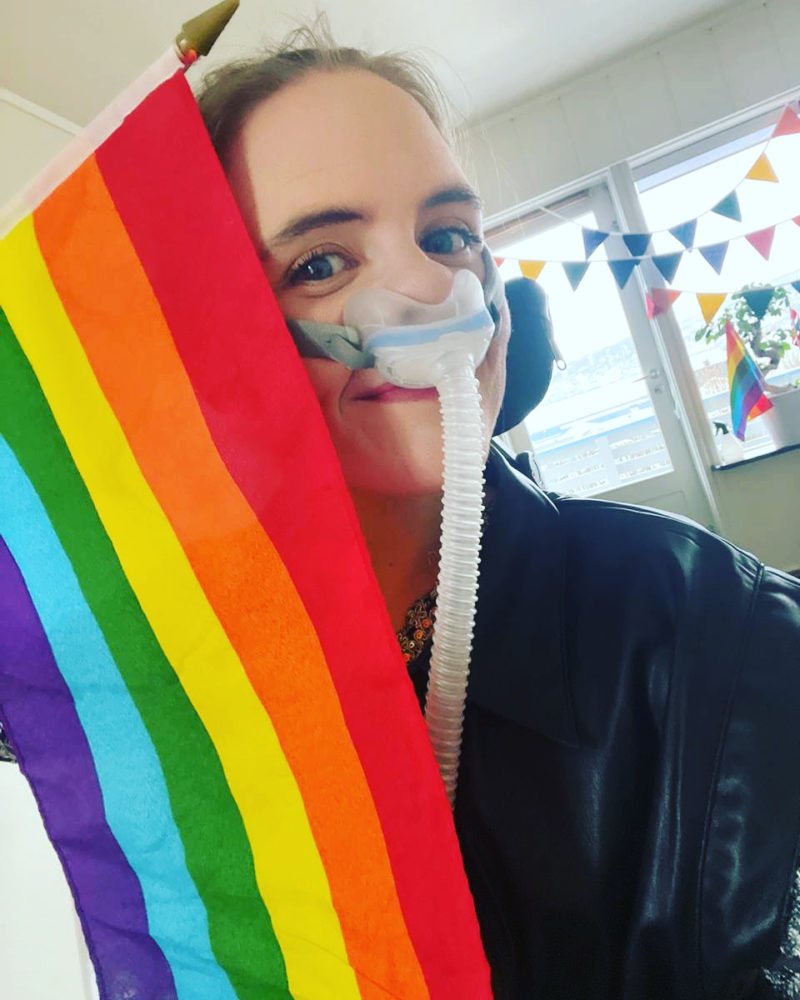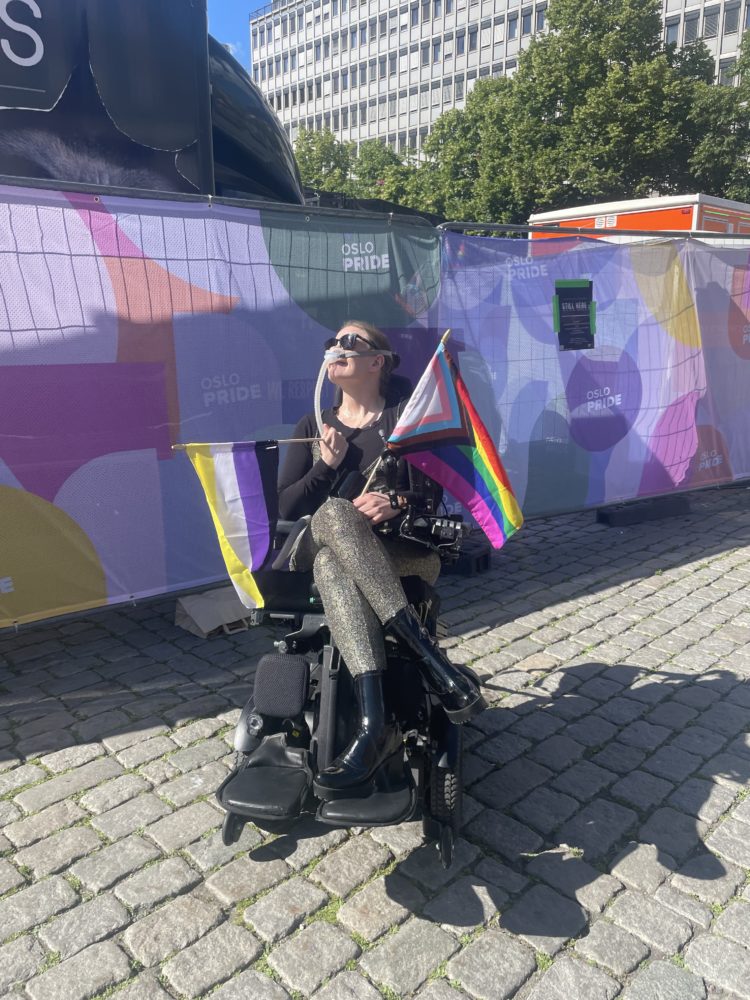Interview done by EDF
LGBTQI+ persons with disabilities are particularly susceptible to intersectional discrimination across multiple areas such as access to healthcare, employment, education and legal protection. Additionally, they often confront social stigma and stereotypes that result in isolation and exclusion from communities and support networks.
Therefore, it is essential to address these issues and promote inclusivity, equality, and intersectional advocacy to ensure the rights and well-being of LGBTQI+ persons with disabilities are protected and respected.
To gain some insight into the current situation and identify areas for improvement, we have interviewed Ingrid Thunem, a queer and non-binary human rights activist who lives with a disability. Ingrid is currently pursuing a Ph.D. focused on the intersection of sexuality, disability, and independent living. Hailing from Norway, they hold a prominent role as the leader of the queer disability network within the Norwegian Disability Association (NAD).
Question: Can you tell us some experiences you had, how being a queer/LGBTQIA+ persons with  disabilities shaped your life? What are some problems that you experience or some positive stories?
disabilities shaped your life? What are some problems that you experience or some positive stories?
Answer: For me, I can never separate my two identities. I am queer and disabled 365 days a year. I always have been and always will be. My identities have shaped my outlook on life.
Luckily, I have mostly positive stories, but in the beginning, I struggled with recognition as queer in disability organisations and often faced challenges with accessibility in queer spaces. This has made me an activist for queer disabled people because we deserve to be seen in both queer and disabled spaces.
My worst experience was at a Pride event when I was with a date, and someone approached me to tell me how brave I was for being there. I have also been told, “This is a queer event, why are you here?”. When I face discrimination like this, I am able to defend myself and ensure that the person knows it is not acceptable. However, I know many people who stop attending queer events or have negative feelings when approaching such events because they fear facing discrimination.
This is my motivation: to create queer disabled spaces within my queer network for disabled people under the official Norwegian Disability Association (NAD). We have organised inclusive Pride events and established separate spaces for queer disabled individuals. Additionally, I have been an active member of my queer organization to make it easier for disabled people to participate.
On a positive note, I often find solidarity and strength when connecting with other queer minority individuals in queer affinity spaces, regardless of their specific minority. I find this unity to be incredibly empowering.
Question: What would you like to see the European Union and authorities do to improve your life?
Answer: My life is great, but I am aware that queer disabled people face discrimination across Europe. Specifically, disabled trans individuals are denied treatment and often experience abuse instead of being able to express their true selves.
If I had one wish, it would be to improve the conditions for trans people all over Europe. This includes ensuring access to gender-affirming care, non-binary identity documentation, and supporting queer safe spaces for disabled trans individuals. As a trans person myself, I understand the importance of knowing that you are not alone and that you have support.
Question: Our newsletter is read by disability activists and representative organisations of persons with disabilities. What should we do better to include the experiences and issues of queer/LGBTQIA+ persons with disabilities?
Answer: As a queer disabled person, I have often encountered discrimination and biases in disabled spaces. Many people say, “But we are a disability organisation, why should we care about queer rights?”. I believe it is extremely important for disability organisations to recognise and collaborate on queer rights. This is because disabled queer individuals exist, and also because of the solidarity we share with another minority group that faces discrimination, just like us.
The barriers we face may be different, but if queer and disabled people support each other’s causes, I am sure we would be able to achieve more victories because we are stronger together.
I also believe that all organisations, especially disability organisations, should use inclusive and gender-neutral language whenever possible. Disability organisations should also have policies against homophobia, transphobia, racism, ageism, and sexism.
About Ingrid Thumen
 Ingrid is a queer non-binary person living above the Arctic Circle. They have a disability and are currently working on a Ph.D. about sexuality, disability, and independent living. Ingrid is an activist in Norway and leads the queer disability network within their disability organization.
Ingrid is a queer non-binary person living above the Arctic Circle. They have a disability and are currently working on a Ph.D. about sexuality, disability, and independent living. Ingrid is an activist in Norway and leads the queer disability network within their disability organization.
Being a part of the LGBTQI+ movement and celebrating pride is extremely important to Ingrid. They also lead a Norwegian network group for queer and disabled individuals. Their biggest dream is to establish a queer and disabled organisation, which seems likely to happen later this fall.